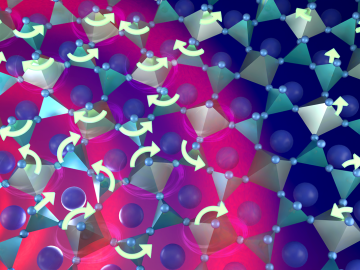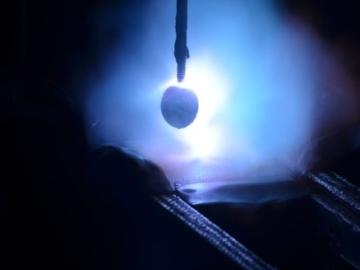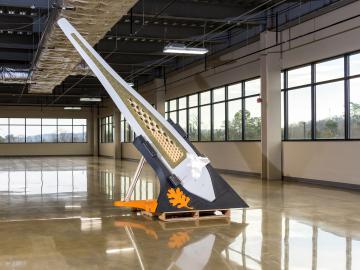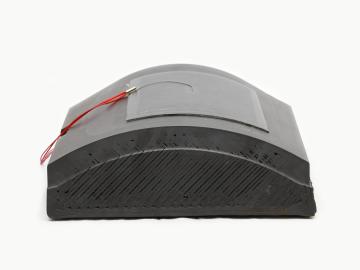
Guided by machine learning, chemists at ORNL designed a record-setting carbonaceous supercapacitor material that stores four times more energy than the best commercial material.

Guided by machine learning, chemists at ORNL designed a record-setting carbonaceous supercapacitor material that stores four times more energy than the best commercial material.
When the second collaborative ORNL-Vanderbilt University workshop took place on Sept. 18-19 at ORNL, about 70 researchers and students assembled to share thoughts concerning a broad spectrum of topics.

Warming a crystal of the mineral fresnoite, ORNL scientists discovered that excitations called phasons carried heat three times farther and faster than phonons, the excitations that usually carry heat through a material.

Oak Ridge National Laboratory scientists designed a recyclable polymer for carbon-fiber composites to enable circular manufacturing of parts that boost energy efficiency in automotive, wind power and aerospace applications.

Scientists at ORNL used neutron scattering to determine whether a specific material’s atomic structure could host a novel state of matter called a spiral spin liquid.

Researchers at Oak Ridge National Laboratory demonstrated that an additively manufactured polymer layer, when applied to carbon fiber reinforced plastic, or CFRP, can serve as an effective protector against aircraft lightning strikes.

Researchers at Oak Ridge National Laboratory will present eight innovative technologies currently available for commercialization during a public event at ORNL on October 17.

In the shifting landscape of global manufacturing, American ingenuity is once again giving U.S companies an edge with radical productivity improvements as a result of advanced materials and robotic systems developed at the Department of Energy’s Manufac

A successful test of 3D-printed thermoplastic molds demonstrates the potential of additive manufacturing in the tooling industry.

